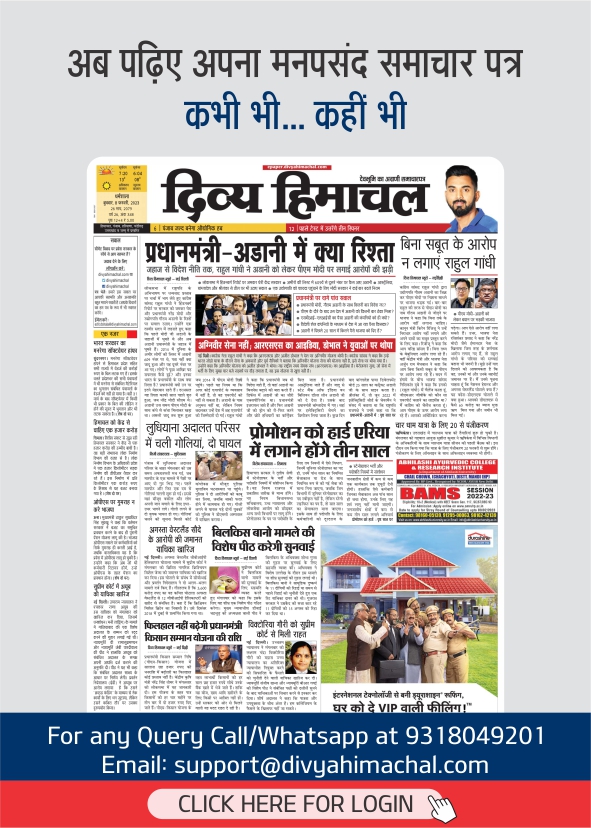India Needs A Presidential System To Check One-Man, One-Party Rule

Founder of Divya Himachal & Author of ‘Why India Needs the Presidential System’

India saw similar conditions in the times of Indira Gandhi and Rajiv Gandhi. In those times too, all the country’s decisions were taken by one person. And each time, many major decisions went awry. India needs to end this reliance on a single individual’s wisdom and instead build strong institutions of governance. It’s time India adopted a system of government that empowers smartly-crafted institutions rather than centralise all powers into one person.
Lessons From America
The presidential system of America is designed exactly for that purpose. Their system is the opposite of one-man rule. The president in that system controls only the executive branch of government. He or she cannot make or amend laws, and has no control over the country’s legislative Assemblies. He cannot dissolve the legislature, or appoint any of its leaders. His power of veto can be overruled by a two-thirds majority.
* The American president also has little control even over his own party. He cannot appoint its officials or decide its agenda. He has no say over when elections are held. He cannot even appoint, by himself, his own cabinet; his nominations must be approved by the legislature.
And their President has no authority over state governments. He cannot dismiss them, or overrule their governors, or legislatures, or state judiciaries. Even for their central Supreme Court, his authority is limited to nominating judges for appointment. Those judges must then be approved by the legislature. The president doesn’t have unfettered control over the country’s military, either. Or over the nation’s budget. The limitations to his power are, in fact, far too many to list here. One of America’s founding fathers, Thomas Jefferson, may have said it best: The way to have a good and safe government is not to trust it all to one, but to divide it among the many.
* This has been the single biggest reason behind many of India’s most historic blunders. Nehru’s Kashmir and China policies were never debated or questioned in Parliament, or in any other public forum, before they were implemented.
The Ideal of Decentralisation
For a large and diversified nation, this form of decentralisation is the only way to have an effective government. When each institution of governance – from local to central – is empowered through direct elections and clear assignment of responsibilities, each becomes more accountable.
Also, genuine checks and balances become possible only when powers are divided into different centres of government. With a single centre of power, real checks become meaningless. There is no authority with sufficient independence to question decisions or subject them to public scrutiny. Further, Indira Gandhi’s Emergency and Rajiv Gandhi’s anti-defection laws were also decisions taken single-handedly or by a coterie that didn’t serve the nation’s best interests.
Modi may even have added to this list of blunders already, with his demonetisation and Kashmir policies, neither of which was subject to approval or even debate by another branch of government, or ministers from his own Cabinet.
Towards a Presidential Form of Government?
These are some of the reasons many Indian thinkers have argued in favour of switching to a presidential form of government. The latest voice in this knowledgeable group is Shashi Tharoor’s. At the launch of my new book Bharat Me Rashtrapati Pranali, Tharoor explained how “the presidential form of government is needed to check one-man rule.”
He was joined by Shanta Kumar, member of BJP’s Margdarshak Mandal, former chief minister and central cabinet minister, who said:
The current system is an absolute failure and must be changed.
Constitutional scholar Padma Bhushan Dr Subhash Kashyap agreed.
The current political leaders have a vested interest in not allowing a change in our system of government. But the presidential system must be considered.
Historically, many of India’s most eminent men have argued in favour of the presidential system. Even the chief architect of our Constitution BR Ambedkar himself was a proponent. He submitted a plan to the Constituent Assembly for a ‘United States of India,’ utilising many of America’s best features. KM Munshi, another member of the Assembly, said in the 1960s:
If I had to make a choice again, I would vote in favour of the presidential system.
PM Vajpayee said in 1998, “We should discuss the merits of the presidential system.” JRD Tata, Nani Palkhivala, Kushwant Singh, former president R Venkataraman, Arun Shourie, Ramkrishna Hegde – all these men have been proponents of this form of government.
* The general depiction of America’s president as “the most powerful man on the planet” has created a powerful myth about that form of government. The US system vests executive power in a single individual not to bestow him with all authority, but to assign him all responsibility for the execution of laws.
Busting Misconceptions
That a presidential system is the best protection against one-man rule is becoming increasingly clear with America’s new President, Donald Trump. His autocratic ways were stopped within two weeks of his election by one state’s judiciary, when his travel ban on some Muslim nations was declared illegal. This was possible only because US state governments and their judiciaries are genuinely independent. Similarly many of Trump’s preferred appointments to his own cabinet withdrew or were denied, due to the powers of confirmation held by the US Senate. When his promised repeal of Obamacare failed to pass in their Congress, we saw how a president’s legislative ambitions could be thwarted. It is time that India also adopt a system of government with such separation of powers. It would improve the quality of our laws; allow our best, most visionary candidates to succeed and rise; boost the efficiency of our governance on the ground; and, perhaps most important of all, curb corruption at all levels of our government.
विवाह प्रस्ताव की तलाश कर रहे हैं? निःशुल्क रजिस्टर करें !
Keep watching our YouTube Channel ‘Divya Himachal TV’. Also, Download our Android App













